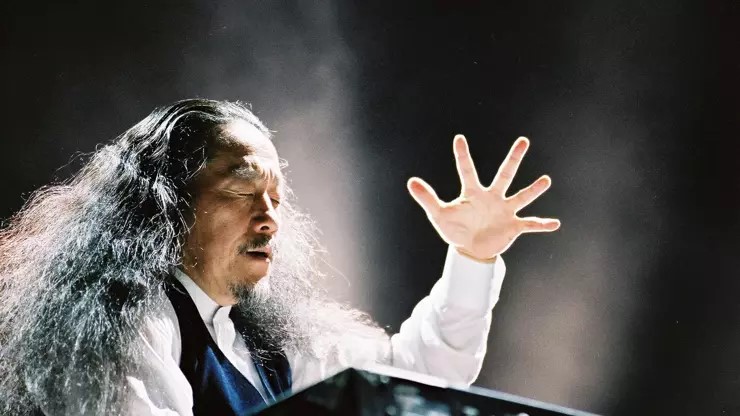A New Age music star from Far Asia, master of the synthesizer: Who is Kitaro?
Kitaro, whose real name is Masanori Takahashi, is one of the most well-known representatives of this music, such as Vangelis and Yanni. However, unlike others, his music contains traces of the Far Eastern culture of which he is a part, rather than Western-style melodies.

Kitaro, who was born in Japan on February 4, 1953, developed his musical interests and skills with his own means and produced his first works in this field with the music group named "Albatross", which he founded during his high school years.
Two important events that changed Kitaro's life were his meeting with the famous musicians of the period, Fumio Miyashita, and Klaus Schulze, whom he met in Germany when he went on a world tour with him; Because his perspective on music changed thanks to Fumio Miyashita, who made spiritual therapy and meditation music, and through Klaus Schulze, he was introduced to the "synthesizer", which he would later use as the main instrument of his music.
Kitarō, born Masanori Takahashi (February 4, 1953), is a Japanese recording artist, composer, record producer, and arranger noted for his electronic-instrumental music, and is often associated with and regarded as one of the most prominent musical acts of new-age music. He won the Grammy Award for Best New Age Album for Thinking of You (1999), with a record 16 nominations in the same category. He received a Golden Globe Award for the original score to Heaven & Earth (1993).
Kitaro's world-traveling adventure continues with trips to Thailand, China, India, and other Asian countries. During these periods when he matured philosophically, he managed to reflect the influences he received from the places he visited into his music.
He summarizes his view of life in his own words as follows: "The event that gave me peace of mind was the realization that I was equal to a beggar on any street of Calcutta, for example, in another country that was miles away from the city where I was born and was absolutely unlike it."
His first known musical works begin to appear in the early 1980s. After this period, he entered a period of maturity in his music.
He is not a fan of putting a definitive label on his music; In general, he says that "his music evokes spirituality and the important thing is that it prompts the listener to think and feel."
The similarities with Yanni are that they both lack the training in musical writing and reading; Since he had no knowledge of notes, he created his own style and drew pictures instead of notes.
His instrument-playing skills are diverse, like Vangelis, and he has the ability to play many keyed percussion, and wind instruments. His philosophical beliefs are based on Buddhism and Shinto traditions.
